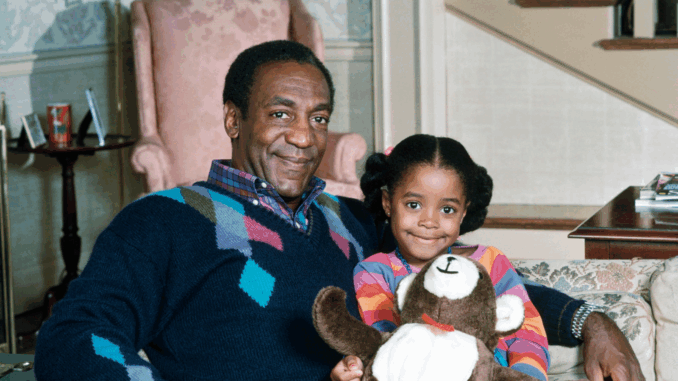
Four decades after its debut, The Cosby Show continues to occupy a complicated yet undeniable space in American television history. While the legacy of its creator, Bill Cosby, has been severely tarnished by numerous sexual assault allegations and convictions, the show’s cultural significance remains a subject of debate — and rediscovery.
A Trailblazing Moment for Representation
When The Cosby Show premiered in 1984, it marked a radical departure from previous portrayals of African-American families on screen. Instead of the typical narratives focused on poverty or crime, the Huxtables were wealthy, professional, and deeply connected. For many, the show was the first time a Black family was represented as not only relatable but aspirational.
Its influence went far beyond ratings. Young Black viewers saw themselves reflected in characters like Denise, Theo, and Rudy. At the same time, white American audiences were exposed to a different image of Black life — one rooted in stability, intelligence, and warmth.
A Legacy Complicated by Scandal
However, the show’s legacy took a sharp turn in the late 2010s. After dozens of women came forward with allegations against Cosby — culminating in his 2018 conviction — the public reevaluation was swift and harsh. Networks dropped reruns. Cosby’s name was stripped from honors. And The Cosby Show went from beloved sitcom to controversial artifact.
The #MeToo movement challenged audiences to reconsider the line between art and artist. Should the personal crimes of a show’s creator invalidate its positive cultural impact? Or is it possible to hold both truths — that the show was groundbreaking, and that the man behind it abused his power?
A New Generation’s Perspective
Interestingly, The Cosby Show is being rediscovered by Gen Z viewers — many of whom weren’t alive during its original run. On platforms like YouTube and TikTok, clips from the show are being shared for their humor, fashion, and surprisingly timeless family dynamics. This younger audience is more likely to approach the show with a nuanced lens: praising its representation, while condemning its creator.
In university classrooms and cultural studies, the show is increasingly used as a case study in “separating the art from the artist” — a debate that shows no signs of fading.
Conclusion
The Cosby Show is a reflection of a cultural crossroads. It changed American television, opened doors for diverse storytelling, and left a lasting impact on how families — particularly Black families — were depicted on screen. But its story is also a cautionary tale about celebrity, power, and accountability.
In the end, The Cosby Show still matters — not just for what it achieved, but for the conversations it continues to spark.
